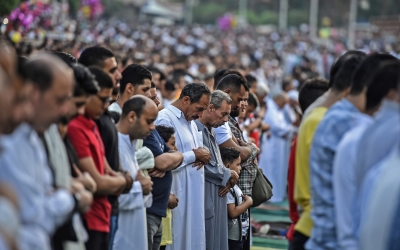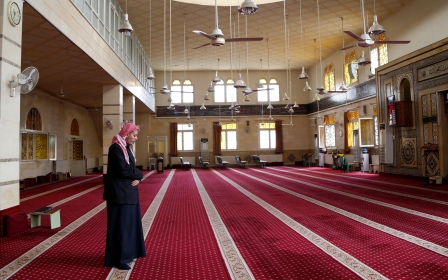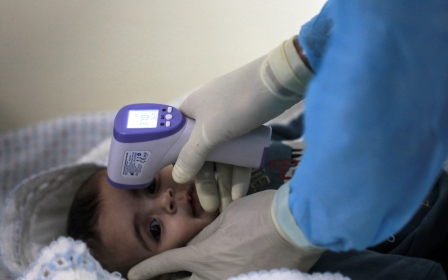'Painful': Al-Aqsa mosque closed for Ramadan amid coronavirus

Jerusalem's Al-Aqsa mosque compound will be closed to Muslim worshippers throughout the holy fasting month of Ramadan because of the coronavirus pandemic, according to the council of clerics that oversees its operations.
The council, appointed by neighbouring Jordan, announced the new measure on Thursday, extending the initial ban on prayer there that was issued late last month.
Closing the Al-Aqsa compound, considered Islam's third-holiest site, was "painful" the clerics said, but the decision was "in line with legal fatwas (clerical opinions) and medical advice".
Ramadan will begin about 23 April. Usually, the fasting month draws tens of thousands of Muslims daily to the Al-Aqsa mosque as well as to the adjoining Dome of the Rock, where Muslims believe the Prophet Muhammad ascended to heaven.
Instead of traveling to Al-Aqsa to pray, the council advised Muslims to "perform prayers in their homes during the month of Ramadan, to preserve their safety".
In one sign of normalcy, the Muslim call to prayer will still take place five times daily at the site during Ramadan and religious workers will still be allowed entry, the council's statement said.
Passover and Easter precautions
Jerusalem has sites sacred to Judaism, Christianity and Islam, and all three religions have taken coronavirus precautions.
Last week, Jews marking Passover in Jerusalem and across Israel were required to stay at home and celebrate only with immediate family.
Typically a large event, Passover prayers at Jerusalem's Western Wall, the holiest place Jews are allowed to pray in the city, were attended this year by only a handful of worshippers.
The Church of the Holy Sepulchre, believed by Christians to be the site of Jesus' crucifixion, burial and resurrection, has also been closed. The closure of the church had been particularly significant as Christians of various denominations celebrate Lent, Palm Sunday and Easter during the spring season.
Its current closure amid the coronavirus pandemic was the first time the doors of the Holy Sepulchre had been shuttered to the public in almost 700 years.
Israel has reported at least 140 deaths and about 12,600 cases of Covid-19. There have been two deaths and almost 300 cases in the Israeli-occupied West Bank and Gaza Strip.
All mosques in Gaza have been closed since 25 March, and since 14 March in the West Bank.
Before the outbreak of the virus, Palestinians in Jerusalem had already faced difficulties praying at the Al-Aqsa mosque, with Israeli soldiers attacking worshippers and settlers regularly storming the compound.
In mid-March, Israeli settlers entered the area despite the coronavirus restrictions.
Middle East Eye propose une couverture et une analyse indépendantes et incomparables du Moyen-Orient, de l’Afrique du Nord et d’autres régions du monde. Pour en savoir plus sur la reprise de ce contenu et les frais qui s’appliquent, veuillez remplir ce formulaire [en anglais]. Pour en savoir plus sur MEE, cliquez ici [en anglais].






